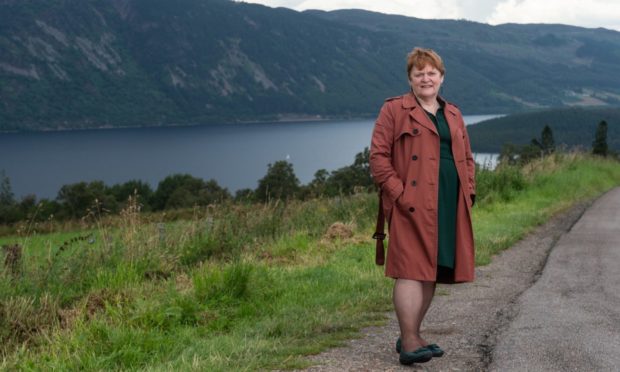MSPs have rejected a controversial council ward boundary shake-up in the Highlands amid concerns it could undermine efforts to halt depopulation.
The Scottish Parliament’s local government committee voted unanimously on Tuesday against proposals put forward for the Highland Council area by Boundaries Scotland.
The vote has left a questionmark hanging over the arrangements for next year’s local government election in the region.
Proposals for Argyll and Bute were also opposed by the MSPs, but the recommendations for Orkney, Shetland and the Western Isles were approved.
The committee had previously been urged to reject the plans by Highland Council leader Margaret Davidson, who said elected members at the local authority had been left feeling “deeply unhappy and dismayed” by the recommendations.
One of the concerns highlighted by Ms Davidson related to a plan to reduce the number of councillors in the North, West and Central Sutherland ward from three to two, and in Wester Ross, from four to three.
She described it as a “real contrast” to the Scottish Government’s policies designed to tackle depopulation, arguing that “this is only going to make matters more difficult”, because “we believe that the challenges of representing these vast wards needs more than two and three councillors”.
Reacting to the committee’s decision on Tuesday, Ms Davidson said: “I would like to thank the MSPs for taking account of our genuine concerns and unanimously rejecting these proposals.
“The council has been strongly opposed to these proposals from the beginning and have been very clear, that these changes to wards did not take into account the unique circumstances of Highland and would have resulted in a significant democratic deficit for many of our communities.
“We are keen to work constructively with Boundaries Scotland on a new review after the local government elections next May which takes into account the issues of sparsity of population, rurality of our geography as well as parity.”
We are keen to work constructively with Boundaries Scotland on a new review after the local government elections next May which takes into account the issues of sparsity of population, rurality of our geography as well as parity.”
Boundaries Scotland chairman Ronnie Hinds had previously defended the plans, telling MSPs that the changes suggested in the north were not “dramatic” and they were unlikely to have a “significant impact” overall.
Reacting to the vote on Tuesday, he said: “We will read the committee’s report with interest so that we can seek to understand the justification for their rejection of the statutory reviews carried out by an independent commission.”
Before the vote, Deputy First Minister John Swinney told the committee: “Were parliament not to approve the regulations, I cannot conceive alternative propositions could be put in place in advance of the 2022 local authority elections, in any circumstance where parliament did not approve the regulations as part of this process.
“I don’t think there is sufficient time to do that.”
Last week, committee convener Ariane Burgess, a Highlands and Islands MSP, asked Mr Hinds what Boundaries Scotland would do if the parliament were to reject one or more of the proposed regulations.
He responded: “It is not entirely clear what we could do.
“It is clear what we could not do, because there would not be time to carry out a full review of a whole council area ahead of the elections that are scheduled for next year.
“That would mean that a given area would go into those elections with the current form of representation that they got through the previous reviews.
“For some, that might not be such a difficulty—that would not change anything at all for Orkney, for example. However, the proposed changes are significant in Highland in particular, as well as in Argyll and Bute.
“The levels of disparity in those areas do not serve the electorate well and it would be a mistake to allow that to prevail for the coming elections.”
It is not entirely clear what we could do. It is clear what we could not do, because there would not be time to carry out a full review of a whole council area ahead of the elections that are scheduled for next year.”
He added: “The main point is that we could not do anything in advance of the elections. That would be the price of rejecting the regulations.
“What happens after that would be new ground for all of us. We are not entirely sure about that, but the commission stands ready to act on instructions from ministers and, ultimately, the parliament about what has to happen following the reviews that we have just completed.”


